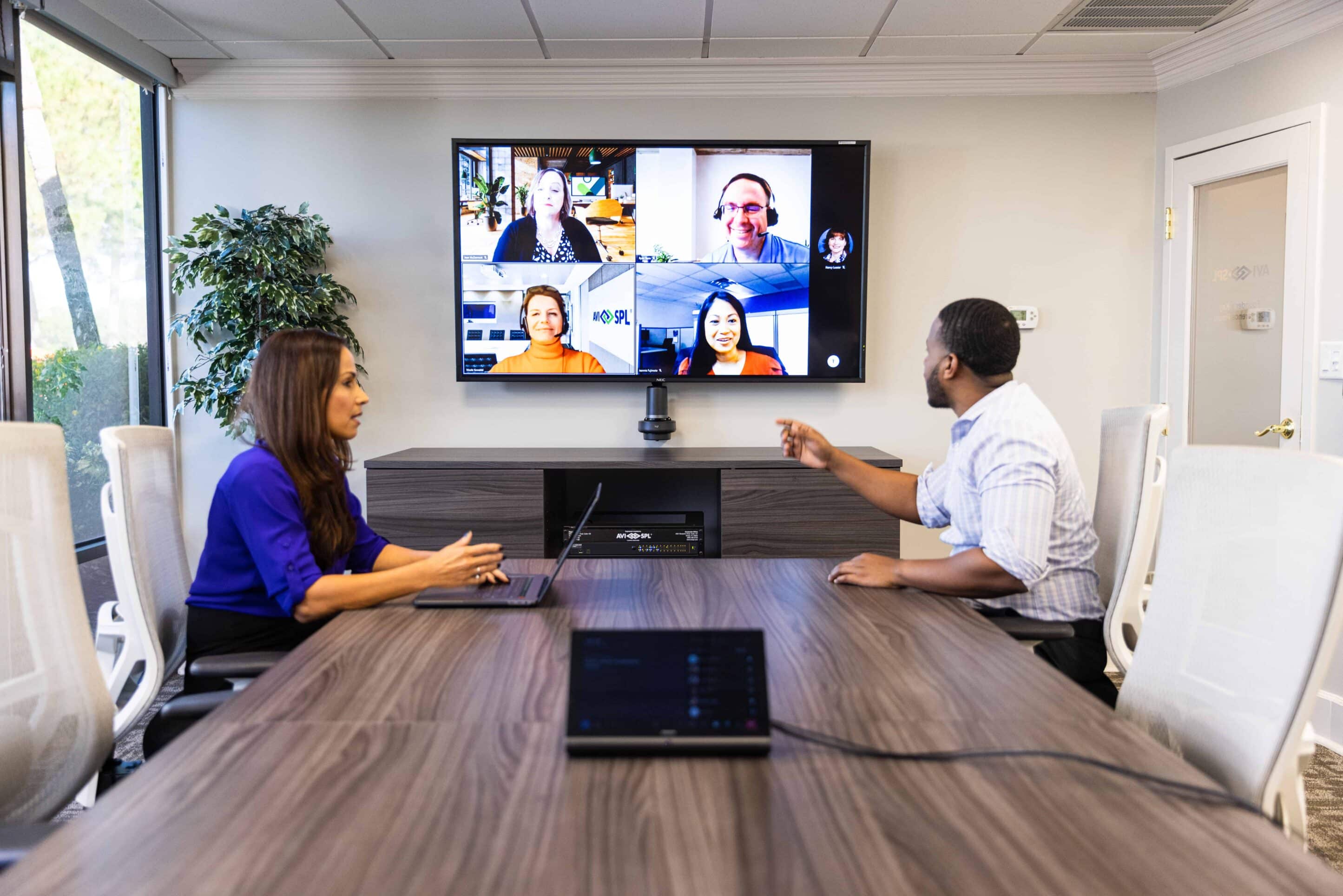The flexible workplace model runs on secure collaboration tools like Microsoft Office 365, Cisco, and Zoom. Using these platforms, our teams can host hybrid meetings and share content from anywhere, with anyone.
But did you know? Every meeting or communication can reveal too much information when the proper security settings are not in place.
Non-password-protected meeting invites, unrestricted guest access, screen sharing presentations, chat communications, and document sharing, can grant access to unintended audiences. And teams can reveal sensitive business plans, financial information, or confidential customer details without knowing it.
To avoid inadvertent data breaches, IT teams should ensure hybrid meeting platforms adhere to strict cybersecurity standards.
Ensuring collaboration technology platforms meet your IT security standards
It is no secret that your interoperable communication and collaboration platforms must meet your organization’s IT security and confidentiality standards.
As you incorporate more platforms throughout your organization, IT should review native platform security settings to learn if they line up with company standards.
And as each platform is installed, IT will need to update security and system settings to match, ensuring sensitive information is always secure.
To make sure the right information and material are available for the right audiences before, during, and after meetings, IT must dedicate resources to managing platform security loopholes.
Minimize flexible workplace security loopholes with dedicated IT maintenance and cloud management
Secure collaboration across hybrid meeting platforms relies heavily on your IT team’s ability to consistently monitor, manage, and optimize your cloud-based work environment.
IT resources must institute collaboration platform rules, policies, and training, like:
- User platform and device access controls
- Collaboration and communication security standards
- Meeting room and license provisioning
- End-user platform security training and best practices
Introducing security policies gives your hybrid workforce a level-set understanding of how to work. After instituting these policies, IT must manage and govern user, device, and cloud configuration, including:
- Guest access monitoring
- Database inventory programming
- Cloud content classification and user parameters (confidential, client-specific, public)
- Quick governance issue discovery, diagnosis, management, and resolution
Maintaining cloud-based platform configuration and ensuring device software and firmware updates are critical to ensuring hybrid meeting security and productivity. Updates include:
- Application upgrades
- License management
- Automated update policies
- Platform security control standards
Regular maintenance helps ensure your coworkers can share content confidently, knowing they have the most up-to-date security settings protecting them and the business.
Cloud management and IT maintenance is a tedious and time-consuming process. It requires full-time resources to ensure systems are secure and business operations run smoothly.
Handing these repetitive tasks to a trusted collaboration technology partner can help your organization keep meetings and shared documents secure. In turn, third-party management and maintenance will allow your IT department to focus on long-term, strategic goals and projects.
Secure collaboration from anywhere with AVI-SPL global support and managed services
From cloud administration to software and firmware updates, AVI-SPL global support and managed services help your IT teams analyze, optimize, and improve your hybrid workplace technology ecosystem.
We make sure your anywhere workforce can feel comfortable interacting and sharing the right content and information easily and securely.
Contact our teams to learn how AVI-SPL collaboration technology support and managed services can keep your systems secure and your business thriving.

